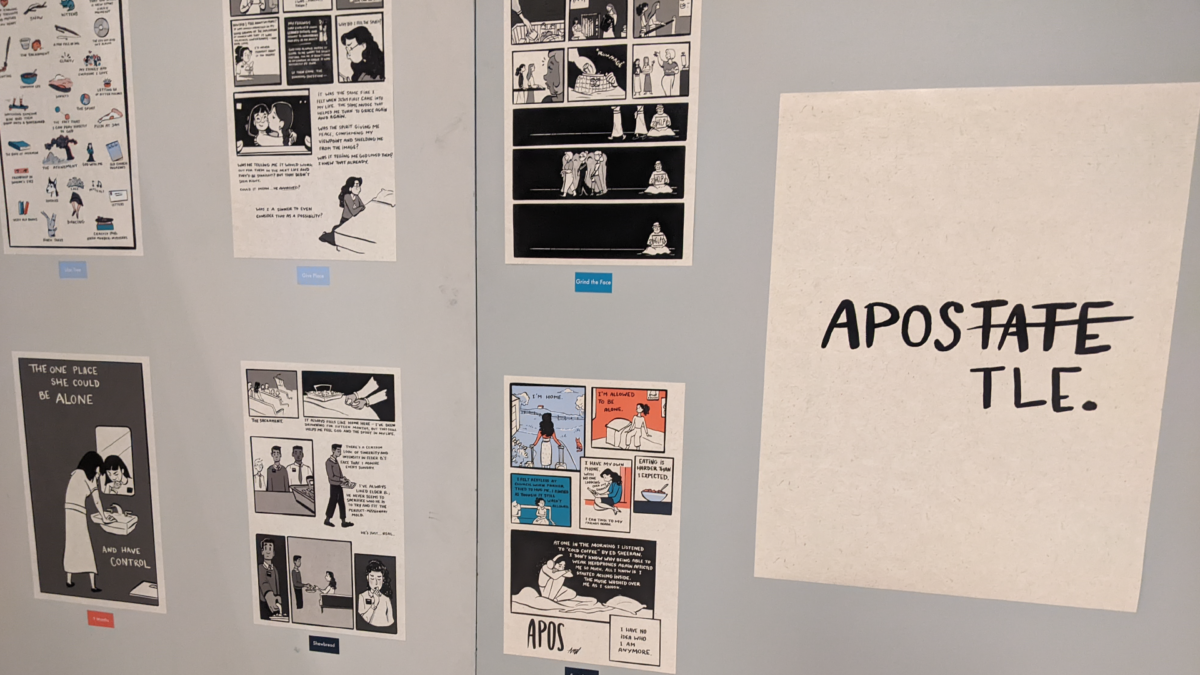“As for you, you whitewash with lies; all of you are worthless physicians. If you would only keep silent, that would be your wisdom!” (Job 13:4-5, NRSV)
I went to the bathroom at work this week, and right as I walked in, there was a fluorescent pink scooter lying in the middle of the tiled floor. Some hip-hop-influenced pop was emanating from one of the stalls, and beneath the dividing wall I could see a pair of brightly colored sneakers. It felt like this guy owned the bathroom. I couldn’t help but smile. He’d turned it into his work of art for a few minutes—and I think the world needs more of that kind of color.
Honestly, universities might be the best places to find art in all of its forms. I had this conversation with Auna after she and her husband came to my vocal recital and we were waylaid by the foyer gallery. There’s still so much weirdness, as people here are reaching out to touch the world in brand new ways at their peak level of creativity before going out to be crushed by the corporate universe. (Not that college life isn’t crushing in its own ways—it just does so in a way that somehow fosters nonconformity, not the other way around.)
I think the most touching pieces of art are the ones that call us to listen—even when that listening is painful. Pictures can be loud and shake us to get our attention, or they can sit still and unassumingly whisper, “I’m here, too.” Somehow they reach us differently than text. They’re more real, more demanding. The “APOS” display by Anna Wright (Instagram: @frizz_biz) was particularly intimate. Listening to her story, I heard my own.
I don’t think being a good speaker makes one a good person, but being a good listener, willing to listen no matter what, does. It’s a shame that we put good speakers up on the podium.
It’s cruel of Auna to be leaving Utah so soon after we’ve become real friends. Good things too often come bundled with bad things, and for some reason, the things that stay with me the longest are always the things that stay with me the shortest. C’est la vie. As she’s so faithful about reminding me, it might be tough, but it must be good for the plot. ∎


